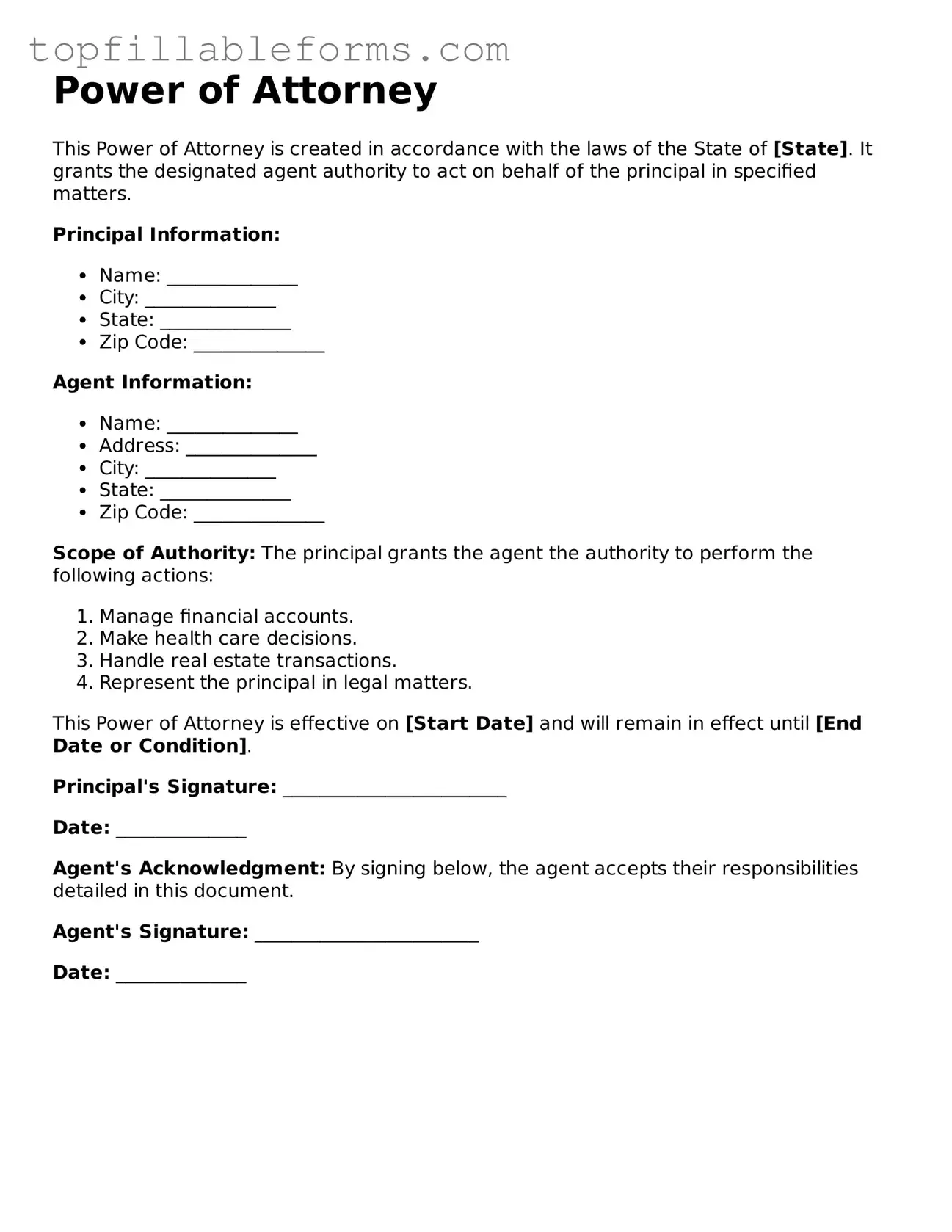Free Power of Attorney Form
A Power of Attorney form is a legal document that allows one person to act on behalf of another in legal or financial matters. This arrangement can be crucial when someone is unable to make decisions due to illness, absence, or other reasons. Understanding how this form works can empower individuals to ensure their interests are protected when they cannot advocate for themselves.
Open Power of Attorney Editor Here

Free Power of Attorney Form
Open Power of Attorney Editor Here
Finish the form now and be done
Finish your Power of Attorney online by editing, saving, and downloading fast.
Open Power of Attorney Editor Here
or
▼ PDF File
